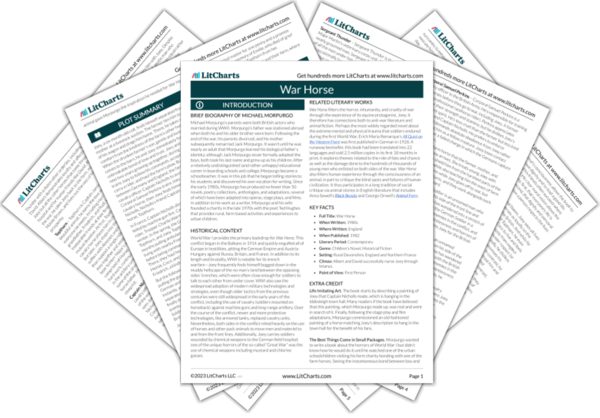The bonds of mutual affection between Joey and Topthorn have seen them through many traumatic experiences, from the loss of their British cavalry officers to the aftermath of several disastrous charges, to the hard work of hauling artillery shells. The horses, unfettered by human sensibilities, seem to have a natural wellspring of hope and strength that replenishes them. But this isn’t inexhaustible, and Herr Major’s inability—or refusal—to make any concessions doesn’t bode well for Topthorn’s recovery.
